In Part 1, we considered the forces shaping the world order and the attempts to impose various models of global governance upon it. In Part 2, we discussed the progress of the global power shift from West to East and asked why so many stalwarts of the so-called “unipolar world order” have not only accepted the inevitability of that power shift but have apparently assisted it.
Ostensibly, the multipolar version of the world order is a departure from the unipolar model in the sense that it will—supposedly—genuinely observe international law and share power among a broader coalition of nation-states. As a result, it will introduce—supposedly—functioning multilateralism into global governance, arguably for the first time. To some, this multipolar model sounds preferable to the current, international rules-based unipolar model.
Yet, when we look at the statements of the touted leaders of the new multipolar world order, their objectives seem indistinguishable from those of their unipolar counterparts.
For one thing, they express an unwavering commitment to sustainable development and Agenda 2030.
For another, they support the United Nation’s Security Council remaining the political centre of global governance—though, notably, loss of the veto isn’t countenanced.
In addition, they wholeheartedly endorse the World Economic Forum’s AI-driven 4th Industrial Revolution (4IR).
They also regard censorship and information control as necessary to fight the “infodemic” and to protect the world against “disinformation.”
Their global initiatives—and the public-private partnerships that will implement them—are practically identical to the initiatives of their unipolar counterparts, though they offer an important variation, which we’ll discuss in Part 4.
Finally, to supporters of multipolarity, a new global “financial system” is, as ever, the key to the supposed “transformation.”
Thus far, the globalist oligarchs, who are the ultimate beneficiaries of the unipolar model, have not only advocated the polarity shift from West to East but have also played a part in facilitating it. Indeed, they have created the monetary, financial, economic and thus geopolitical conditions that appear to guarantee it.
We learned in Parts 1 and 2 that the unipolar world order established a system of global governance that is founded upon global public-private partnership and that this empowered oligarchs to engineer policy agendas around the world, unconstrained by national borders.
If the multipolar world order is something new, then surely this trajectory towards centralised global governance should change, right? But when the multipolar model seems to be accelerating the transition to centralised power, then we have to wonder if there is anything new and different about it at all.

The Multipolar Great Reset
As mentioned previously, the World Economic Forum (WEF) declares itself to be the leading organisation for global public-private partnerships (G3P). In 2019, the WEF attempted to stake its claim by entering into a strategic partnership with the UN. The broad objective of the partnership was “to accelerate the implementation of the 2030 Agenda for Sustainable Development.”
The WEF has conspicuously inserted itself into the global narrative over the last few years, most notably with its alleged Great Reset (the GR). The book of that name, written by Klaus Schwab and Thierry Malleret, purportedly “in response” to the claimed global pandemic, is just another in a long line of attempts to exploit public fear and anxiety to sell a set of policy agendas.

The tenor of the book and the Great Reset project is to offer “analysis” and “suggest” possible solutions in the spirit of solidarity with and compassion for humanity and nature. The dazzling minds behind it have tried to help us “understand what’s coming in a multitude of domains.” It is not a plan but rather friendly advice. At least, that is what the WEF claims.
The WEF represents the most powerful global corporations on Earth. As we have seen in the last couple of years, the pharmaceutical corporations alone can and do shape, and often drive, global policy decisions. One would need to be extremely naive to imagine that the WEF and its stakeholders (members) cannot effect that which they claim merely to advise. This is context within which we will analyse their words.
According to the pair, “the essence” of the GR is a plan to replace “failed ideas, institutions, processes and rules with new ones better suited to current and future needs.” As with nearly every other Western think tank and “international organisation,” they concede that the shift to the multipolar world is simply inescapable:
The 21st century will most likely be an era devoid of an absolute hegemon during which no one power gains absolute dominance. [. . .] In this messy new world defined by a shift towards multipolarity and intense competition for influence, the conflicts or tensions will no longer be driven by ideology. – [The Great Reset (TGR), p. 76]
In the GR, gone are the old distinctions between right and left, liberalism, conservatism, socialism and even the extremes of fascism and communism. For the WEF, all that remains is global environmentalism, which, the book’s co-authors claim, is not an ideology:
In global risk terms, it is with climate change and ecosystem collapse (the two key environmental risks) that the pandemic most easily equates. The three represent, by nature and to varying degrees, existential threats to humankind, and we could argue that COVID-19 has already given us a glimpse, or foretaste, of what a full-fledged climate crisis and ecosystem collapse could entail from an economic perspective. – [TGR, p. 95]
Fortunately, for the WEF and its partners, this imminent annihilation is actually an “opportunity,” or so they say:
The broader point is this: the possibilities for change and the resulting new order are now unlimited and only bound by our imagination, [. . .] economies, when they recover, could take the path of more inclusivity and be more attuned to the needs of our global commons. – [TGR, p. 17]
Enthusiastically adopting accelerationism, Schwab and Malleret claim:
[W]ithout delay we need to set in motion the Great Reset. This is not a “nice-to-have” but an absolute necessity. [. . .] The pandemic gives us this chance: it “represents a rare but narrow window of opportunity to reflect, reimagine and reset our world”. [quote attributed to Klaus Schwab.] – [TGR, p. 172]
And:
As economies restart, there is an opportunity to embed greater societal equality and sustainability into the recovery, accelerating rather than delaying progress towards the 2030 Sustainable Development Goals[.] – [TGR, p. 175]
The only problem this duo foresee with the “shift towards multipolarity” is that the associated retreat from “globalization” might happen too quickly. Of course, according to them, a premature retreat would cause “havoc”—so we should be properly terrified of the possibility. Consequently, in their eyes, the new “form of globalization” will only be “viable” if the right overarching system is firmly in place: global governance. As they put it:
A hasty retreat from globalization would entail trade and currency wars, damaging every country’s economy, provoking social havoc and triggering ethno- or clan nationalism. The establishment of a much more inclusive and equitable form of globalization that makes it sustainable, both socially and environmentally, is the only viable way to manage retreat. This requires policy solutions [. . .] and some form of effective global governance. – [TGR, p. 81]
Schwab and Malleret allege that the pseudopandemic-initiated breakdowns raise what they see as the deplorable prospect of a “global order deficit.” Therefore, in the absence of an “absolute hegemon”—the unipolar world order—nation-states must find a way to “collaborate at the global level.” They said:
If no one power can enforce order, our world will suffer from a “global order deficit”. Unless individual nations and international organizations succeed in finding solutions to better collaborate at the global level, we risk entering an “age of entropy” in which retrenchment, fragmentation, anger and parochialism will increasingly define our global landscape, making it less intelligible and more disorderly. The pandemic crisis has both exposed and exacerbated this sad state of affairs. [TGR, p. 76]
 The so-called Great Reset has been designed to manage and exploit the orchestrated collapse of the unipolar world order. The path toward multipolarity, redesigned globalisation and a new order is set. It is the “deglobalisation” inherent to the multipolar world order that provides the suggested “opportunity” for the global public-private partnership. No one, especially the WEF, suggests retaining the “hyper-globalization” of the “absolute hegemony.” They explained:
The so-called Great Reset has been designed to manage and exploit the orchestrated collapse of the unipolar world order. The path toward multipolarity, redesigned globalisation and a new order is set. It is the “deglobalisation” inherent to the multipolar world order that provides the suggested “opportunity” for the global public-private partnership. No one, especially the WEF, suggests retaining the “hyper-globalization” of the “absolute hegemony.” They explained:
There is no point in trying to restore the status quo [. . . ], but it is important to limit the downside of a possible free fall that would precipitate major economic damage and social suffering. [. . .] This will only come about through improved global governance – the most “natural” and effective mitigating factor against protectionist tendencies. [. . .] There is no time to waste. If we do not improve the functioning and legitimacy of our global institutions, the world will soon become unmanageable and very dangerous. There cannot be a lasting recovery without a global strategic framework of governance. – [TGR, p. 81]
That “strategic framework” is the global governance of a multipolar world and the WEF claim that this is simply the most “natural” response to global crises, given that, in the WEF’s view, individual nation-states are unable to address the world’s problems. Consequently, for the WEF, only multilateral institutions of global governance, such as its strategic partner, the United Nations, can avert catastrophe. This is “the essence” of the Great Reset, as the book makes clear:
[W]ithout appropriate global governance, we will become paralysed in our attempts to address and respond to global challenges, particularly when there is such a strong dissonance between short-term, domestic imperatives and long-term, global challenges. This is a major worry[.] – [TGR, p. 83]
And:
[T]he bottom line is this: in the face of such a vacuum in global governance, only nation states are cohesive enough to be capable of taking collective decisions, but this model doesn’t work in the case of world risks that require concerted global decisions. The world will be a very dangerous place if we do not fix multilateral institutions. – [TGR, p. 85]
The WEF’s “bottom line” is that, real or imagined, the Westphalian model is simply unequipped to deal with “global challenges.” Only “multilateral” global governance can avert descent into a “very dangerous” world. Hence, a shift towards multipolarity is required.
These are precisely the arguments that the supposed leaders of the new multipolar world order have been making.
To claim, as some do, that the “Great Reset” represents a defence of the unipolar order and that the shift towards a multipolar model is some sort of antidote to the GR appears to be based upon a fundamental misunderstanding of what the GR is.
Multipolar History
To illustrate this point further: Schwab and Malleret suggest that the “global challenges” they have identified will continue the trend of “regionalization.” They say that instead of the US-led unipolar hegemony, the world will increasingly be divided into semi-autonomous continental-scale regions:
The most likely outcome along the globalization–no globalization continuum lies in an in-between solution: regionalization. The success of the European Union as a free trade area or the new Regional Comprehensive Economic Partnership in Asia (a proposed free trade agreement among the 10 countries that compose ASEAN) are important illustrative cases of how regionalization may well become a new watered-down version of globalization. [. . .] In short, deglobalization in the form of greater regionalization was already happening. COVID-19 will just accelerate this global divergence as North America, Europe and Asia focus increasingly on regional self-sufficiency rather than on the distant and intricate global supply chains that formerly epitomized the essence of globalization. – [TGR, p. 79]
This “regionalised” world bears an uncanny resemblance to the model exposed by Professor Carroll Quigley. In his 1974 interview with Washington Post journalist Rudy Maxa, Quigley spoke about the “three-power world.” He had already meticulously catalogued the activities of an Anglo-American network, whose members had taken great strides toward constructing a system of global governance that they hoped to control:
They were working to federate the English-speaking world [. . .]. They were closely linked to international bankers. [. . .] [T]hey were working to establish a world, what I call a three-power world. And that three-power world was: The Atlantic Bloc (of England and the Commonwealth and the United States), Germany (Hitler’s Germany), Soviet Russia. [. . .] [T]his is all described in my book, and this was their idea. Now notice, it’s a balance of power system.

The idea of power blocs that were sometimes antagonistic to one another but that each played their part in maintaining a centrally controlled global system of managed international relations sounds very similar to the model outlined by the Rockefeller Brothers Fund’s Special Studies Project.
To wit: In 1955, the Rockefellers, fresh from their pivotal role in creating the United Nations, spotted the talents of Henry Kissinger while he was a study director of the Council of Foreign Relations (CFR), a US foreign policy think tank. The next year, they commissioned him to oversee a five-year project that would “define the major problems and opportunities facing the U.S. and clarify national purposes and objectives, and to develop principles which could serve as the basis of future national policy.” Kissinger led that project and has remained the Rockefellers’ envoy ever since.
The subsequent collection of “Rockefeller Panel Reports” was published in Prospect for America (PfA) in 1961. In those reports, the Rockefeller-chosen panelists noted that 19th century imperialism had been a means of maintaining world order but that the two world wars had conveniently put paid to government’s ability to control it, hence the claimed necessity for the UN. The Rockefellers and their man Kissinger identified what the WEF would later call the “global order deficit”:
One system of organizing international order has been destroyed without replacement by another. – [Prospect for America, p. 164]
The problem was that the UN wasn’t working as the Rockefellers or their partners intended. Annoyingly, representatives of the national governments belonging to that international body kept insisting upon their own ideas.
This meant that the Rockefellers’ “high hopes” for the “institutional expression” of true global governance were stymied. Where did the blame lie? Here:
High hopes were not fully realized because the formal institutions of world organizations were designed to achieve more than the consensus of existing shared aspirations was prepared to support. – [PfA, p. 164]
What this lack of consensus came down to was that nation-states, comfortable in their pursuit of the Westphalian mythology, were acting in their sovereign self-interest and were forming bilateral trade agreements and defence treaties. Thus they were somewhat resistant to absolute global governance by their private partners. The Rockefellers’ solution to the nation-states’ intransigence was to balkanise the planet into more manageable chunks, or blocs, or “poles.” This would then allow global governance, under the auspices of the Rockefellers and their partners, to flourish:
The hoped-for result is peace in a world divided into smaller units, but organised and acting in common effort to permit and assist progress in economic, political, cultural and spiritual life. [. . .] It would presumably consist of regional institutions under an international body of growing authority — combined so as to be able to deal with those problems that increasingly the separate nations will not be able to resolve alone. [PfA, p. 26]
Subsequently, a Rockefeller-funded global policy think tank known as the Club of Rome came up with some farcical predictive computer models in its 1972 publication, The Limits to Growth. Then, nearly twenty years later, in 1991, the Club of Rome published more farcical prognoses in its First Global Revolution (FGR). Building upon its silly computer models, it made up some predictions about natural disasters, none of which have transpired as prescribed, for obvious reasons.
Nonetheless, despite this being nonsense, the FGR really did define the alleged “problems” that nation-states cannot supposedly “resolve alone.” Today, the whole world accepts all of this as if it were factual. We are collectively following a global agenda based upon the calculated, unevidenced musings of a Rockefeller funded, elitist club:
In searching for a common enemy against whom we can unite, we came up with the idea that pollution, the threat of global warming, water shortages, famine and the like would fit the bill. In their totality and their actions these phenomena do constitute a common threat which must be confronted by everyone together. But in designating these dangers as the enemy, we fall into the trap, which we have already warned readers about, namely mistaking symptoms for causes. All these dangers are caused by human intervention in natural processes and it is only through changed attitudes and behaviour that they can be overcome. The real enemy, then, is humanity itself. [FGR, p. 75]
 For the oligarchs who manipulate the global economy and world events, humans are the real problem. The oligarchs’ warnings of climate disaster are used to legitimise their mechanisms for managing us, not the environment. According to their warped logic, human behaviour must be controlled and human beliefs reordered. Their ideas are all very much in keeping with the pathetic quackery of eugenics that many oligarchs, such as Bill Gates, appear to accept.
For the oligarchs who manipulate the global economy and world events, humans are the real problem. The oligarchs’ warnings of climate disaster are used to legitimise their mechanisms for managing us, not the environment. According to their warped logic, human behaviour must be controlled and human beliefs reordered. Their ideas are all very much in keeping with the pathetic quackery of eugenics that many oligarchs, such as Bill Gates, appear to accept.
The Rockefellers and their partners—a “network,” if you like—designed the UN in order to exert real global governance over the “smaller units”—regional blocs:
The United Nations [is] the international organisation that today holds out the reasonable hope of being able to take over more and more functions and to assume increasingly large responsibilities. [. . .] The spirit and the letter of the Charter [. . .] gives more than lip service to the indispensable world order[.] [PfA, p. 33]
And:
The UN stands, finally, as a symbol of the world order that will one day be built. [PfA, p. 35]
The Rockefellers and their partners have explained how this world order will emerge. The key to global governance, they insisted, was to be multilateral “regionalization” (a claim the WEF and other advocates of the multipolar world order would later repeat).
Note that Kissinger’s Rockefeller-funded researchers used the “United States” and “we”/”us” interchangeably in their reports. In this instance, it seems pretty clear who the “we” referred to is:
The most natural multination arrangements are frequently regional. [. . .] Fully developed, they imply a joint accord on monetary and exchange arrangements, a common discipline on fiscal matters, and a free movement of capital and labor. [. . . ] We believe that this regional approach has world-wide validity. [. . .] What is needed immediately is a determination to move in the direction they imply. Regional arrangements are no longer a matter of choice. They are imposed by the requirements of technology, science, and economics. Our course is to contribute to this process by constructive action. [PfA, pp. 188–190]
The Multipolar Coincidence
The multipolar world order is not new. Nor does it stand in opposition to the so-called Great Reset. Both are just two more stepping stones along the path toward the age-old goal of global governance.
In the Great Reset book, Schwab, speaking for the WEF, declared that global governance in a multilateral, regionalized world with more localised supply chains was “the most natural” response to global crises.
Perhaps it is just a coincidence that sixty years earlier the Rockefellers published what appears to be precisely the same plan and claimed that the “most natural multination arrangements are frequently regional.”
Perhaps it is also just a coincidence that, prior to the Rockefellers’ Special Studies Project, the “network” exposed by Prof. Carroll Quigley also suggested essentially the same global governance system based upon a multipolar “balance of power.”
These coincidences lead one to observe that the formulation of the multipolar plan predates the WEF’s similar plan by more than a century.
One could also observe that the Rockefeller brothers commissioned their own think tank, the Club of Rome, to dream up scary stories about climate disaster, food and water shortages and the like—and then the WEF used the same fables as alleged justification for its global reset. Mere coincidence, surely.
That the nominal leaders of the new multipolar world order constantly cite the same tales—none of which mirror reality—as a reason for their proposed reset of global governance might likewise be mere coincidence.
From central bankers to prominent members of various think tanks to political leaders, it seems that the vanguard of the Western unipolar model accept the inevitability of that system’s replacement. Curiously, many of the same people, in responding to the war in Ukraine, have made decisions and advocated polices that are hastening the transition from unipolarity to multipolarity. Again, probably mere coincidence.
A central tenet of the suggested multipolar world order is to strengthen adherence to the Charter of the UN, thereby establishing genuine global governance. Globalist oligarchs have long advocated exactly the same approach and so do the claimed leaders of the multipolar world order. Another instance of mere coincidence?
The ambition of the crowd that Quigley called “the network,” like the ambition of the Rockefellers’ Special Studies Project and the ambition of the WEF’s Great Reset and the ambition of the Club of Rome and the ambition of the Council on Foreign Relations and the ambition of the BRICS, is, and always has been, global governance. Mere coincidence, yes?
There is a wealth of evidence revealing how these various groups—and more clubs and secret societies than we have room to name here—have manipulated events and shaped policy globally. Recently the shift toward the multipolar order has accelerated sharply due to a major global event (war) and the policy response to it. Certainly, more mere coincidence.
In both China and Russia, governance is based upon the absolute fusion of the public and private sector. And we know the UN was established as a public-private partnership. Interestingly, Russia and China just happen to be the two permanent members of the UN Security Council who are taking the lead on the development of the multipolar world order. This must be a coincidence.
The political theory of multipolarity incorporates elements of political philosophies and cultural ideologies, such as Eurasianism and tianxia, which also lend themselves perfectly to global governance.
We shall discuss these latter points, and more, in Part 4. But the fusion of the public and the private sectors and the overlapping philosophies and ideologies common to both Russia and China are probably just another in a long and remarkably consistent timeline of coincidences.
If you believe in that sort of thing.
Please Note: There is no .pdf for this post.



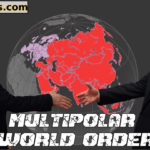
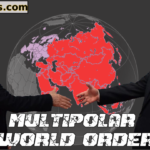
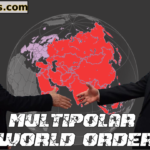
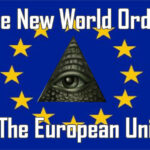
Dear Ian.
Apologies for approaching you this way, but i could not find a contact section on your website. Understandably.
I will keep this brief as i appreciate you are a busy man.
I was watching the TFTC interview recently with Whitney Webb and she raised the point of uk national parks being sold off to a wierd consortium of folk that you had uncovered. I live in one close to you and have watched it change over the last 20 years in very odd ways.
I would be very interested in this subject and its situation as i have smelled a rat for some time. Would it be possible to give me some pointers to head me in the right direction of investigation? I have had a brief look going on Whitney said and nothing.
Thank you in advance if you can help, but mainly thank you for all you do.
It validates my thoughts and findings and keeps reminding me i’m not mad, but most are.
Sincerely
N.
Thanks Nicholas. Briefly, the National Parks sell off [land grab or “capitalisation of nature.”] is being orchestrated by Revere ECO. https://revere.eco/
The is “a partnership between Palladium and the UK National Parks.” Palladium “works with governments, businesses, and investors to solve the world’s most pressing challenges.” – https://thepalladiumgroup.com/about
Palladium is a “for profit” investment management project which generously claims “Our mission is to catalyse an enriched future for all, which is why we commit 1.5% of our profit to humanitarian relief efforts.”
So the question is how much did they invest in National Park land and what is it’s estimated real value? Because, if they “invested” in it at anything less than 98.5% of its market value (think future ESG and carbon offsets) they are most assuredly onto an excellent “green” moneymaking scam.
Here’s my prediction. They hoovered it up at a fraction of its market value.
Good luck with your investigation you can contact me by emailing [email protected]. – Which I’ll add to my bio if I haven’t already.
Please let me know what you discover.
Hi Iain. I’d like to know too
While phrases ‘blazing minds’ and ‘exclusive elitist’ indicate admiration, tone of article disparages; many authors already done same with this topic.
‘Help us understand’ views us as stupid and ignorant but know-it-all attitude inevitably learns nothing; Blair, Gates, that Greta kid, 3 of many obvious examples.
Their plan shows scant thought:
its repetition makes it predictable. Out-witting, undermining, ring-fencing predictable isn’t difficult unless believe ‘superior’ tag.
Digit/finger/blame/steal.
Binary repressive trap: us v them fight for one/won box, push all else into zero/dead box – ‘progress’ to pre-historic fists.
View selfie as whole world: reject, bundle, enslave non-selfie; auto-immune attitude – ignorant, corrupt slavers protect self from non-self; ‘other’ info etc ‘wrong’.
Their logic applied to digitalised think-tanks:
their attitude, beliefs, behaviour do need to be changed, are the problem – digital can’t comprehend life’s continuum.
So, techies and computers claim: “life does not exist” – no hesitation commit murder, incapable of thought thus of self-control, reject control – “tech can’t be controlled” by the thoughtless techies controlled by their tools.
Financiers, same inability; their numbers are also digits.
Google: “self-driving car not problem, problem is unpredictability of people” i.e. ability to think is a problem for Google.
Digitalisation’s the problem:
our pre-historically programmed automatic system fits computers’ binary system but is a highly efficient self-destruct mechanism – knee-jerk responses, now abbreviated to ‘response’, invariably score own-goals.
High emotion coincides with high activity in it and reduced ability to think. Hence relentless sensationalism, fear-mongering: emotion promoted, thought derogated.
Thoughtless people, literally brainless ‘AI’ and algorithms are what cause chaos e.g. T-Maxx and MH370 response to a dot disappearing from a computer screen.
Hi, Ian I Hope, you have some time to check this information out thanks
Liz Truss MARCHES Into PESCO & EU Defence Union Following Critical Tony Blair & EU Defence Policy
BREAKING! | Liz Truss Accused Of High Treason For Selling Out UK Military
https://www.youtube.com/watch?v=xxy3ui6RtBs&ab_channel=CHRISTHRALL
Under Lizz Truss our present/current for the time being PM
The EU has control & Authority power over All of the UK Military
In the foreseeable future, any future conflicts the EU will order the UK to supply personnel via conscription of 16 to 35-year-old persons both male & female to any foreseeable future conflicts
we are essentially under more European control than we were before the Brexit vote
With Penny Mordaunt being the head of the PRIVY COUNCIL she also is in step with Bill Gates
Apart from Boris Johnson who said No to this & paused it the below-named individuals have All orchestrated this coup
Tony Blair
Theresa May
Lizzy Truss
Are all instrumental in implementing this travesty
HRH Charles III King Elect implemented this net zero travesty & the public pays for the cost of living coronation via the government with stealth taxes & Co2 taxes.
King of the World? The High Symbolism of Charles III’s Coronation
You’ve heard of the Magna Carta but have you heard of the new “Terra Carta”? The one that personifies nature’s rights and liberties over people? Have you ever seen a hereditary monarch gets crowned by international, unelected bodies claiming to improve the “STATE of the world”? The underlying message is one that people need to understand at their core: the relationship between the people, the environment, and their rulers have always been deeply contentious. The subject today is much as it was 1000 years ago.
This is the reality of the times we are living in and one of the most important docs we’ve made.
Love you all.
I’m British and my parents love documentaries on history and the monarchy; I feel if I show them this it may bridge the gap between fiction and reality. You’ve made it very accessible for those with no knowledge of esotericism.
https://www.youtube.com/watch?v=M4YEq2Upv2U&t=5740s&ab_channel=TruthstreamMedia
The Napoleonic Wars ushered in the ‘Concert of Europe’, WW1 produced the League of Nations’ and after WW2 we saw the ‘United Nations’.
It would not surprise me, considering the current push to destabilize the global status-quo, to see a re-branding of the UN as it embraces all of the digital tools at it’s disposal.
The MetaVerse simulation of ‘everything’ is where Ricardian Smart Contracts will be sold as the ‘solution’ to all this engineered social, economic & political ‘chaos’.
This is absolute BULLSHIT…there is no multipolar world order, it is Rashist propaganda crap!! The world neither needs that idiotic trash ideas nor the mad people like Pepe Escobar spreading it. What it desperately needs is to crush and to denazify that Rashist state along with the other shithole countries like Belarus, North Corea, Syria, Iran, Nicaragua, Cuba, Venezuela, China, Brasil, Serbia, Hungary, Saudia Arabia…OBLITERATE AND SEND THEM ALL TO HELL!!!
Thank you for your observations. Perhaps you should discuss them with Alex. Despite your differences, the two of you appear to be on the same wavelength.
Oh shut up you stupid FUCKHEAD!!! Nobody needs that bullshit except the Moscow fascists and their paid and dumb Western assholes…FUCK OFF and shove that crap up your goddamn ass, you stupid SHITHEAD!!!
I take it you feel strongly about this?
You’re an inspiration for birth control!! FCKPTN!!!
In part 3 Iain states that China fully embraces the Great Reset and links to the speech by Xi on 22nd January 2022 to the WEF.
China is a major exporter to the world and Xi was not going to upset his current and future customers.
Also, China was about to host the Winter Olympics so his speech had to be “inviting” as possible.
Iain didn’t say what part of the speech proves that China is in on the Great Reset but the part of Xi’s speech that hit me the most was ……
“History has proved time and again that confrontation does not solve problems; it only invites catastrophic consequences. Protectionism and unilateralism can protect no one; they ultimately hurt the interests of others as well as one’s own. Even worse are the practices of hegemony and bullying, which run counter to the tide of history.”
That sounds to me as a dig against the US and the EU and not something China wants in their version of a Multipolar World Order.
Xi goes further ……
“Naturally, countries have divergences and disagreements between them. Yet a zero-sum approach that enlarges one’s own gain at the expense of others will not help. Acts of single-mindedly building “exclusive yards with high walls” or “parallel systems”, of enthusiastically putting together exclusive small circles or blocs that polarize the world, of overstretching the concept of national security to hold back economic and technological advances of other countries, and of fanning ideological antagonism and politicizing or weaponizing economic, scientific and technological issues, will gravely undercut international efforts to tackle common challenges.”
“We should choose dialogue over confrontation, inclusiveness over exclusion, and stand against all forms of unilateralism, protectionism, hegemony or power politics.”
Iain says this speech shows “their objectives seem indistinguishable from those of their unipolar counterparts.”
I would say that the extracts I have listed show the opposite.
Iain also says further proof is that “they support the United Nation’s Security Council remaining the political centre of global governance”.
Lavrov has stated that Russia wants to reform the UN in this TASS article.
https://tass.com/politics/950074
Iain also says “Their global initiatives—and the public-private partnerships that will implement them—are practically identical to the initiatives of their unipolar counterparts”.
China asking the private sector to fund some of the building work for Belt and Road Initiative and Russia asking the private sector to fund some of building work of the Northern Latitudinal Railway are hardly indications that they are both wedded to the WEF’s Great Reset.
Iain’s suggestion that Russia and China are beholden to the likes of the WEF, Rockefellers, Kissinger, Club of Rome, Bill Gates, Council on Foreign Relations etc. is fanciful.
Thanks Geoff B I am not saying that they are beholden to the architects of the unipolar system I am trying to highlight that the architects of the unipolar system have long planned for and tried to install the multipolar system that, apparentky, is led by China and Russia.
The Rockefeller goal of creating “Regionalism” was the impetus for them establishing The Trilateral Commission.
The TC was created for the formation of a European Union (done), North American Union of the USA with Canada and Mexico (NAFTA) and an Asia Pacific Union.
The Bilderberg Group oversaw the formation of the European Union and is now working on uniting the European Union with the North American Union and the Asia Pacific Union, all united in a New World Order.
Yep, William.
Hi Iain,
I stumbled over the rarest of things, two typos in a single article of yours. If you will, take it as a compliment that I’m bothering to let you know.
It says „elitest“ about halfway through and „Eurasionism“ at the end.
Interesting self-therapy action in your comment section, by the way.
Best,
Moritz
Thanks Moritz. Sorted.
Once again this might be another counter intel operation aimed at discrediting a multipolar world where (as the name states) there isn’t a single source of truth or culture. But a degree of regional sovereignty which would not be dominated by solely western imperialism/ Globalism. If you are not a disinfo agent please do more to inform yourself. Read stuff from Alexander Dugin maybe. The recognition of the UN is more of a current compromise. The idea of multipolar world isn’t strong enough yet to make a new organization that can replace the UN. But there are economic blocks which are forming like BRICS.
As far as your fueled deep state conspiracy theories regarding your internal partisanship in America with the plandemic your government created, please do not make that none sense universal. Nations have different policies and at this moment the multipolar alternative hasn’t called for overriding national sovereignty of states to decide their own measures.
There are countries that rejected the western status quo on the plandemic that make part of this emerging alliance. For example Belorussia and Nicaragua.
Thanks Multiporista. I can assure you that I don’t work for the FBI, or produce content on the deep state’s behalf, but there’s no point me trying to convince you of that. I have read quite a bit of Dugin. I hope you will read part 4 with equal interest. https://iaindavis.com/multipolar-world-order-part-4/
And for you guys freaking out about China, please study actual politics and geopolitics more so than the youtube psyops they promote in America. The US which heads the globalists agenda has China as its prime existential threat. The western media spend about as much energy smearing Xi Jing Ping as they do bashing Trump and Putin. These are the leaders they fear. Not freaking Alex Jones.